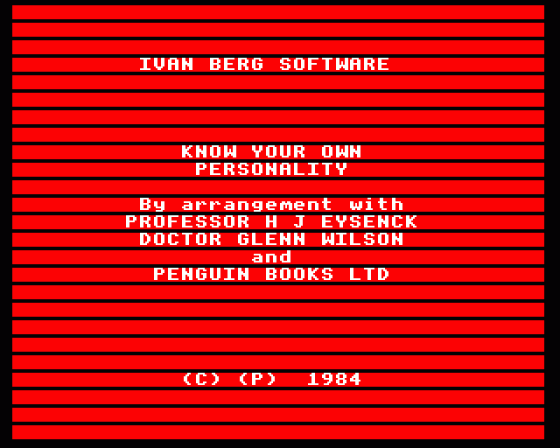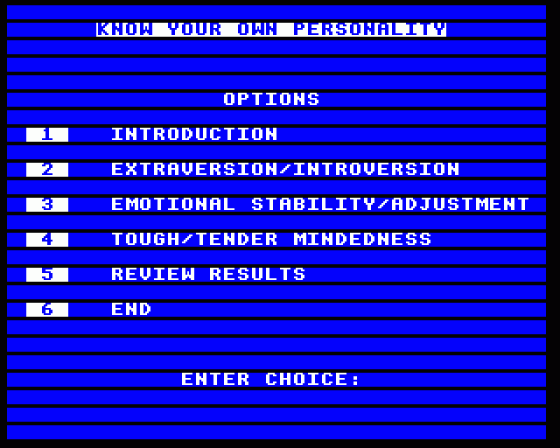Other Reviews Of Know Your Own Personality For The BBC/Electron
Know Your Own Personality (Mirrorsoft)
A review by Simon Dally (Acorn User)
Know Your Own Personality & Know Your Own Psi-Q (Mirrorsoft)
Don't Let 'Em Take The Psi Out Of You
Know Your Own Personality (Mirrorsoft/Ivan Berg)
A review by Simon Dally (Acorn User)


 1st February 1985
1st February 1985











